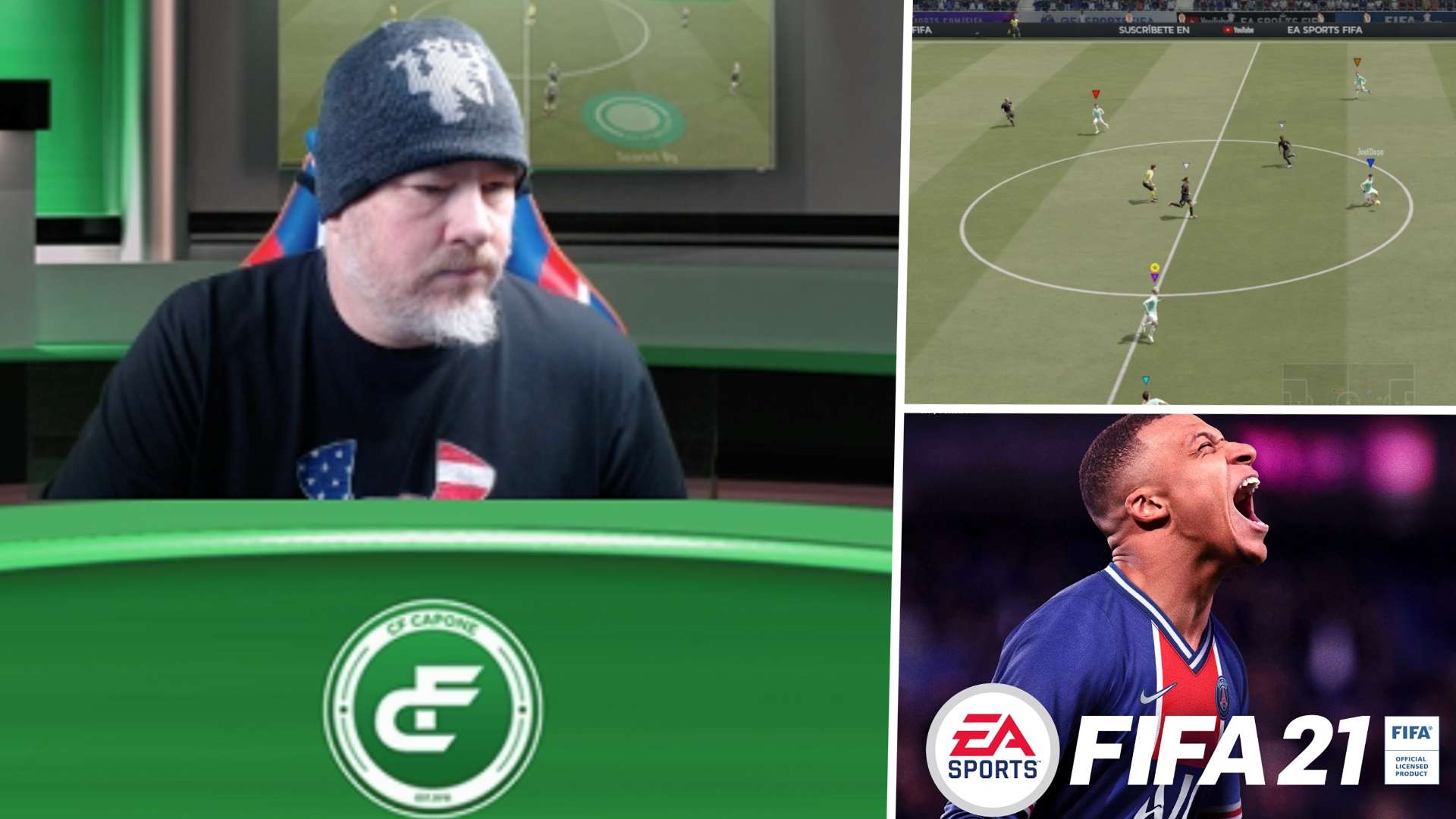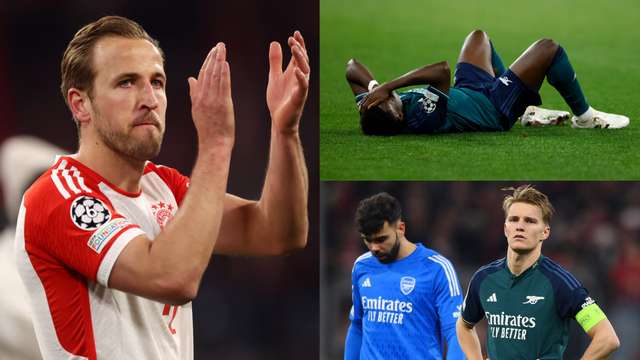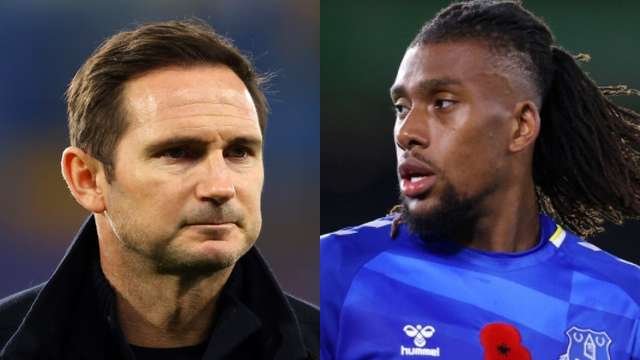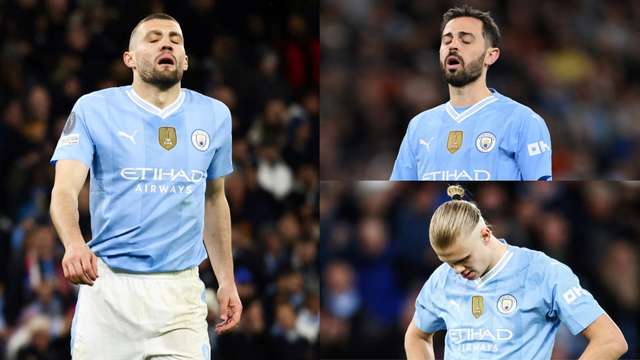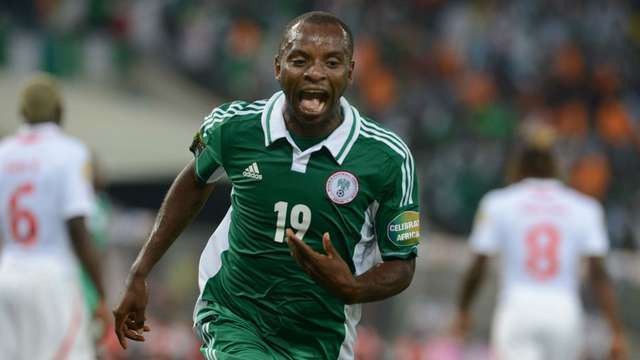Travis Arthofer would not be alive if he hadn’t discovered his passion for live streaming competitive FIFA matches to an interactive online audience five times per week.
The 52-year-old, currently living in Denver, Colorado, experienced life-changing spinal injuries during an accident that occurred after his U.S. military service, leaving his mobility severely hampered, his traditional job prospects non-existent and intense pain pulsating through the right side of his body at all times.
Through Arthofer’s gaming routine, however, he says he has found purpose not only within his own social life, but also in his newfound mission to assist others with disabilities interested in becoming more included in esports.
“I would not be here today on this planet without this, that's being honest,” he told Goal. “When I fire up that stream first thing in the morning and that community is there, it means everything to me, man. And to me, the only reason I want to succeed with streaming is because I want to be able to give back.
"Ultimately, my goal is to be in a position where we can provide that kind of service for veterans, and in particular disabled veterans, because people with disabilities, their minds don't stop. It's just that certain attributes are diminished. And so you have to kind of adapt in life.”
Arthofer is part of a movement of gamers with disabilities who in addition to community-building, have pushed console makers to create accessible, customisable controllers and asked publishers such as FIFA-creator EA Sports to include more flexible game settings so that anyone can find a way to compete.
In the earlier days of the gaming industry, advocates for the cause had been left feeling perpetually unheard, but they are slowly gaining momentum as they harness social networks and climb to more influential positions.
Said Steven Spohn, the chief operating officer of the AbleGamers charity: “People are starting to get it. One of the things that we ran into, in the very, very beginning, was companies really not listening. They really weren't hearing that people with disabilities were a core segment of the gaming population, and that they needed attention.
“Thanks to a lot of work from a lot of advocates, we’ve successfully got it to the point where now they recognize disabled people do need a voice and do need different options. But there are still some lagging behind.”
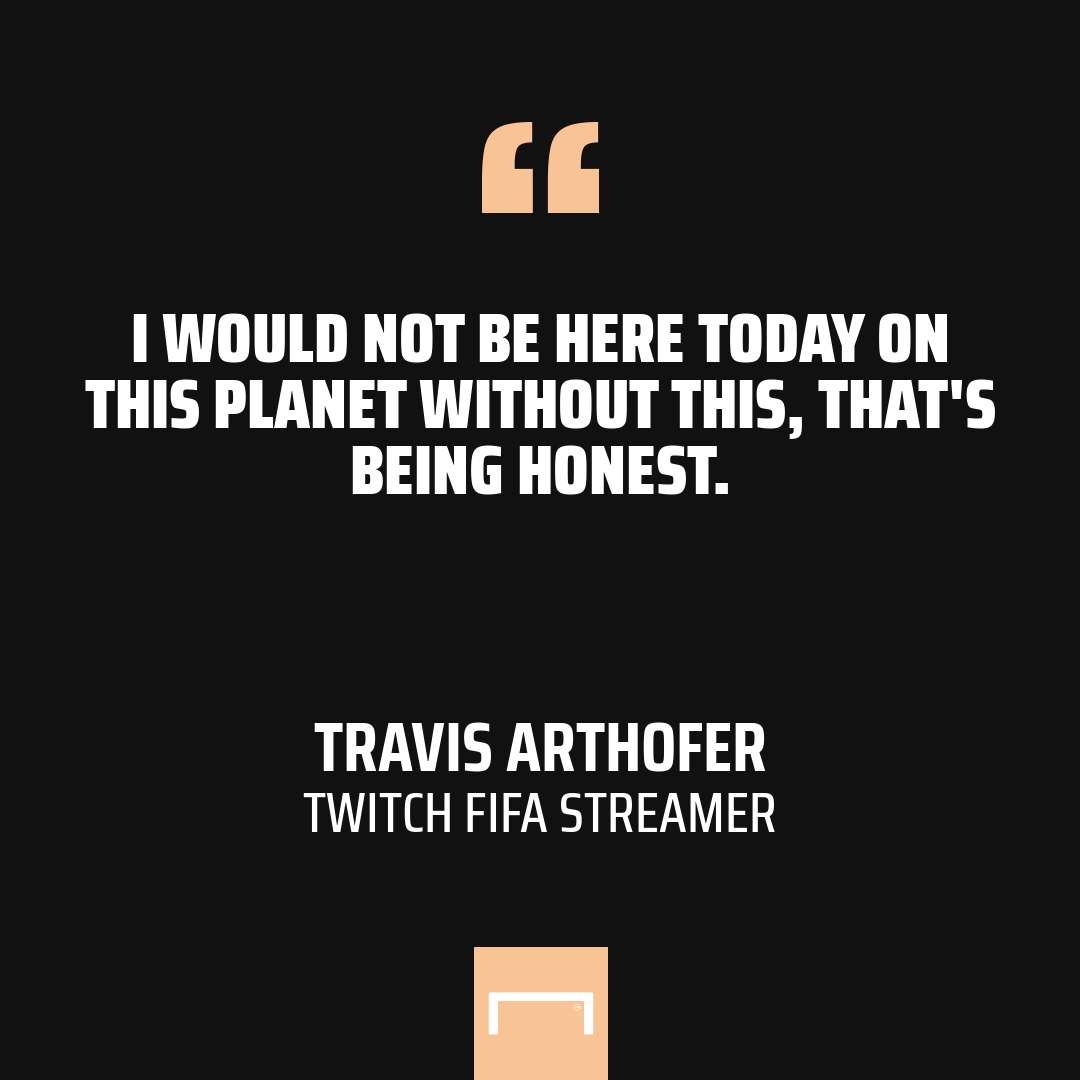 Goal
Goal
The diverse population of gamers with disabilities pushing for a greater voice in the industry includes myriad groups, from charities to national esports bodies to individuals such as Arthofer, who, by way of simply existing in a streaming space traditionally dominated by non-disabled competitors, make an impact by diversifying digital platforms.
But AbleGamers, the group Spohn helps lead, is often cited as a leading force in making the industry a more inclusive space.
Based in West Virginia, the organisation provides custom gaming set-ups to people with disabilities who cannot afford to purchase them on their own. The non-profit learns the specific accommodations people who have contacted them need, and then sends them customised hardware free of charge.
Each individual receives between six to 20 hours of consultation, Spohn said, and a recent spike in video game interest has pushed the organisation to increase the size of its staff over the past year.
As knowledge of the expertise AbleGamers offers has grown, the group has also been able to communicate directly with industry heavyweights about tailoring hardware directly to people with disabilities.
They notably consulted with Microsoft on the Xbox Adaptive Controller first released in 2018, helping form the versatile port that can be mixed and matched with connector cables to ultimately allow a person to use any part of their body, from foot to tongue, to control on-screen characters.
They also carry out dialogues with publishers such as EA Sports about enabling a wider variety of possible button inputs so players can execute moves regardless of which body parts they are capable of using – in other words, ensuring that a device like the Xbox Adaptive Controller can be fully integrated with a game.
Spohn streams games and serves as a sort of connector among people who love to compete in video games but desire a social scene that includes people who might look more like them.
And that part of the equation makes Spohn, who himself has a disability, feel so rewarded by his work.
“[People with disabilities] maybe want to see that someone can make something of what they've been dealt in life,” Spohn said. “Due to disability, it can be quite a challenge, but maybe they need to see examples. And this is where we get into conversations of, you know, representation, and otherness.
“One of the things I've talked about on my Twitch several times is that I'm 40 years old now, and I have [Spinal Muscular Atrophy], which is a terminal illness. And it's a very visible disability.
“I've noticed over the years that pretty much everyone that I've ever dated, and people that I've become very close friends with, they had intersections in their lives where they interacted with people with disabilities. So, I wasn't the first person with a disability that they came across. There needs to be that type of an education point [for more people].”
Major challenges remain, both in terms of creating products everyone can use and having enough representation from people with different physical abilities on streaming platforms.
Getting needed hardware in the first place can be costly for those who aren't able to receive them through charities; the Microsoft Adaptive Controller, for example, costs an initial $100 (£71) but requires additional items such as the Logitech adaptive gaming kit to get full use for specific needs.
"You can't just go to a shop and just buy an adaptive controller, you have to get it specially ordered," said content executive Bryony-Hope Green of the British Esports Association, the de facto governing body of esports in the UK.
"It's just not really fair that people have to go through this really dire and expensive process to be able to get equipment that even allows them to just play the game."
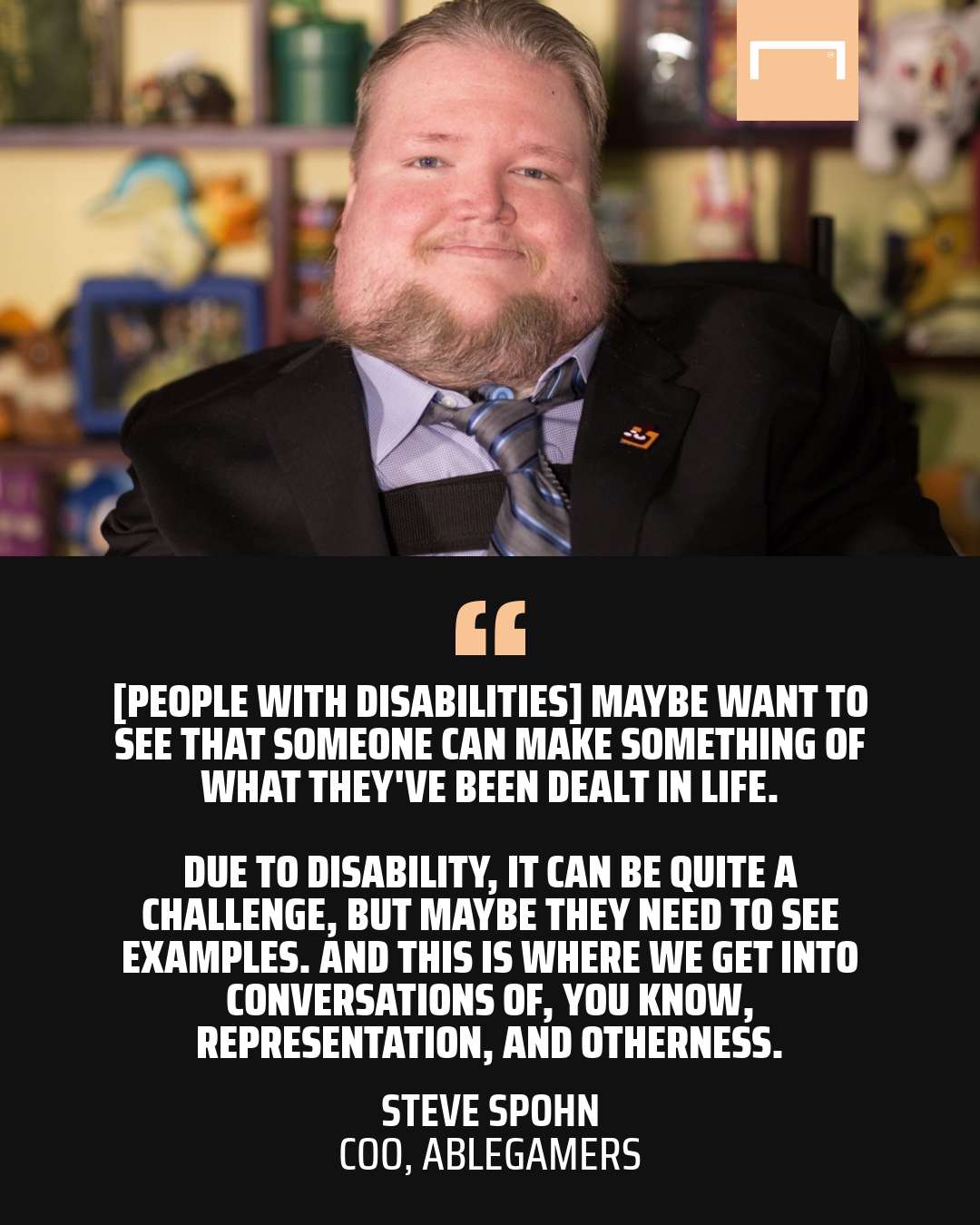 Goal / AbleGamers
Goal / AbleGamers
Countries around the world are racing to develop robust esports governing bodies that can operate similarly to national football associations. They must organise teams and events on the highest levels while also supporting the next generation of competitors through youth development at schools.
As these associations mature over the next decade, there is hope that they can put additional economic resources toward less financially stable people with disabilities needing equipment while pressuring the industry to improve accessibility standards across the board.
Continued advocacy at the individual level will also be of great importance, Spohn said. After all, the potential life benefits of video games are clear. In some cases for people who have endured trauma, such as Arthofer, they're genuine determinants of happiness.
Arthofer, who streams under the alias "TBONE", mainly streams matches from Pro Clubs, the niche FIFA game mode in which users create a player, then use that player in an online squad with a unique name, crest and uniforms.
His side, called CF Capone, is currently ranked in the top 25 in the world in terms of points earned. They’ve won about 70 per cent of their matches while regularly clashing with global heavyweights.
He plays midfield and has logged more than 800 matches for the organisation in FIFA 21, his mohawked character omnipresent in central areas of the virtual pitch.
All the while, his followers on Twitch enjoy his conversational style, and he enjoys bantering with them about his games and their life experiences, sometimes veering his streams into deeply personal and vulnerable territory when viewers bring up their own disabilities or military service.
There was a time post-accident when Arthofer says his wife grew deeply concerned about how he was becoming trapped within himself, his pent-up emotions and sometimes dark thoughts unable to find release as he reckoned with his new physical realities.
“And then I found FIFA, and then more and more importantly, found pro clubs,” Arthofer said. “You know, here I am as a disabled vet. But I played sports for years and years, I played sports in the military, I represented at a high level. And all that's taken away, where do I put my competitive juices into?
"And that's what FIFA has done for me, along with streaming.”
